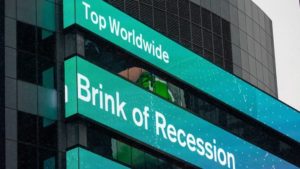

Elijah Cohen – Sepember 18, 2022
The United States is making progress toward the creation of a digital currency, which the administration of President Joe Biden believes would assist in enhancing the country’s position as a worldwide financial leader. It announced the issuance of a framework that outlines the regulation of digital assets, which includes bitcoin and other objects of value that exists purely in digital form.
The framework consists of a number of different approaches that may facilitate the management of these assets and make the digital asset space more resistant to fraud, or so they say.
Government agencies have been hard at work over the last six months, since since President Biden issued Executive Order 14067 on March 22 with the title “Ensuring Responsible Development of Digital Assets,” in order to develop the framework.
The framework recommends the establishment of a central bank digital currency (CBDC), also known as a central band for a digital version of the United States dollar, in order to facilitate the processing of digital transactions more easily. The CBDC has the potential to make possible an efficient payment system, create technical innovations, and facilitate cross-border transactions, all while fostering environmental sustainability, according to a fact sheet that has been released to describe how agencies have responded to the executive order.
In point of fact, digital U.S. dollars already do exist in commercial bank accounts all around the nation. These dollars are backed by reserves in accordance with a method of banking known as fractional-reserve banking.
The Federal Reserve insists that banks only keep a small percentage of their total deposit obligations in cash. Transactions are conducted digitally and do not entail the physical movement of “bags” containing cash.
A theoretical electronic dollar would, in the same way that the physical dollar is controlled, get the complete faith and support of the central bank. Jerome Powell, the chair of the Federal Reserve, has said on many occasions that the primary objective of digital money issued by a central bank would be to do away with the need for cryptocurrencies.











